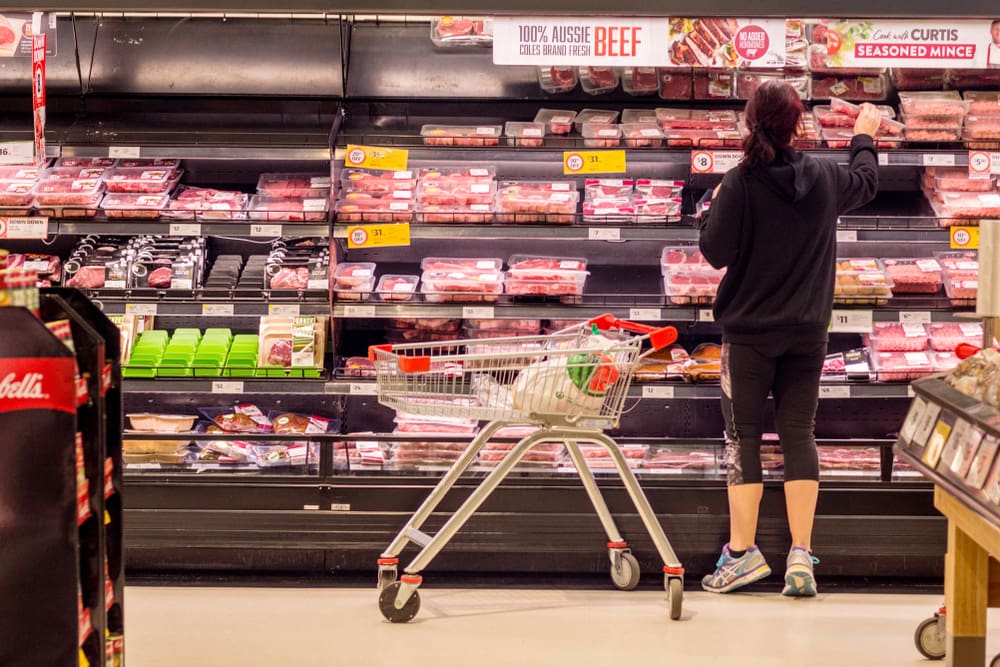OPINION
Coles last week confirmed it will bow to activist pressure and aim to eliminate “deforestation” from its supply chains, just as Woolworths did last year.
In doing so the Boards of both supermarkets have missed a golden opportunity to push back on the activist groups trying to make it harder to produce beef by reinforcing the importance of meat in diets and the need for animals on landscapes.
The supermarkets are in a unique position, they have a deep knowledge of livestock production through relationships they have built over decades and they have the ability to talk to millions of Australian consumers every day.
Instead, the supermarket Boards have committed to eliminating “deforestation” from their supply chains on the back of environmental groups aligning them to systemic habitat destruction in the beef industry.
The activist campaigns leave out the fact that no plant-based food can be produced at scale without some form of land clearing or the fact that Australian beef producers are governed by 136 different State, Territory and Federal laws relating to vegetation management, as Cattle Australia pointed out last week.
Scientists from across the world have come together in recent years to raise concerns about anti-meat campaigns creeping into policies which they have warned will result in reduced access to nutrient-dense food and adverse impacts on the environment.
They started in 2022 with the Dublin Declaration calling on scientists to recognise meat and livestock as essential to human diets and healthy landscape management. The declaration has now been signed by more than 1200 verified independent scientists across the world. Last year their Denver Call to Action asked policymakers to follow.
The Dublin Declaration scientists have not sought to control the supermarkets or policymakers in general, in their words they are just trying to put rigorous, science-based evidence in front of them.
Their movement has given a platform to a growing body of research linking red meat to positive health outcomes and the naturally symbiotic advantages of animals grazing on landscapes.
Activist groups instigated the deforestation policies
One of the main agitators pushing the supermarkets to set “deforestation” targets has been the World Wildlife Fund.
The WWF is one of five founding partners of the “Science Based Targets initiative”, formed in 2015 to pressure organisations to set strict environmental targets. The SBTi sets out a complete guide of how companies can frame their targets, right down to what they can and cannot say.
In 2021 WWF released a paper called “deforestation fronts” which equated land management on Australian cattle stations with clearing of virgin Amazon rainforest. WWF has released further reports stating the Australian beef industry has a “deforestation” problem.
A primary reservation industry groups have expressed about the deforestation reports is their heavy reliance on satellite data, which paints everything as “deforestation” even if it is weed control or regular regrowth control.
Beef Central tackled the subject with several Central Qld producers last year, who were managing for deep-rooted trees, legumes and groundcover while being painted as “deforesters” by the reports.
Another issue is the negative environmental impacts caused by woodland thickening, which has been highlighted for decades by former Qld chief scientist Dr Bill Burrows and several producers.
However, based on the idea that the Australian beef industry has a “deforestation” problem, the SBTi put pressure on Coles and Woolworths to commit to a “no deforestation” target by 2025.
The Woolworths Board signed up to deforestation targets through the SBTi in 2020, before Coles signed up in 2023.
It was years before they would publicly reveal that commitment to the thousands of farming businesses that rely heavily on the supermarket giants for market access.
Groups that were aware that those behind-closed-doors commitments had been made – such as the Australian Conservation Foundation, Greenpeace and the Wilderness Society – piled on with their own campaigns of public pressure against the beef industry.
They ran campaigns on social media superimposing pictures of koalas in meat wrappers on supermarket shelves and conducted public protests at supermarket Board meetings.
Knowing the supermarkets had already committed to these targets some years ago ensured a guaranteed win for the environmental groups, which used the issue to call for more donations to keep their lobbying efforts going.
Deforestation campaigns prompt industry backlash
The deforestation campaigns from environmental groups against the industry was one of the main topics of discussion at last year’s Cattle Australia conference in Tamworth.
In a crowded forum, Central Qld producer Joanne Rea observed that activist groups never give credit to industry for any allowance made in response to activist pressure. She said they just move onto the next campaign and “set the bar higher” for the industry.
Cattle Australia sought to bring all parties, including activist groups and supermarkets, to the same table in recent years as it worked to determine a definition of deforestation that can be applied appropriately to the Australian context, resulting in the science-based “Land Management Commitment” it released last year.
As if on cue, the commitment was instantly publicly derided by the World Wildlife Fund, The Australian Conservation Foundation, Greenpeace and the Wilderness Society.
The supermarket Boards have stopped short of publicly backing the Land Management Commitment in setting their deforestation targets. Coles says it is working on a “beef roadmap” and Woolworths says it is “working with industry”.
While activists have threated to drive a consumer backlash against the supermarkets, hard evidence suggesting they have the level of real-world influence to sway consumers enmasse is somewhat lacking.
Perhaps it was no surprise that the loudest cheer at the strongly attended Cattle Australia conference last year was reserved for Joanne Rae when she publicly urged the industry to stop being so polite and take the fight up to the environmental groups that have been actively working to undermine the industry for years.

